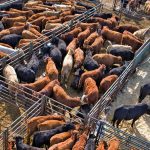Chicago wheat surged to a two-month high on Tuesday as a decline in U.S. winter wheat conditions focused attention on weather risks to northern hemisphere crops.










Grain, soy futures end lower; USDA winter wheat ratings decline
